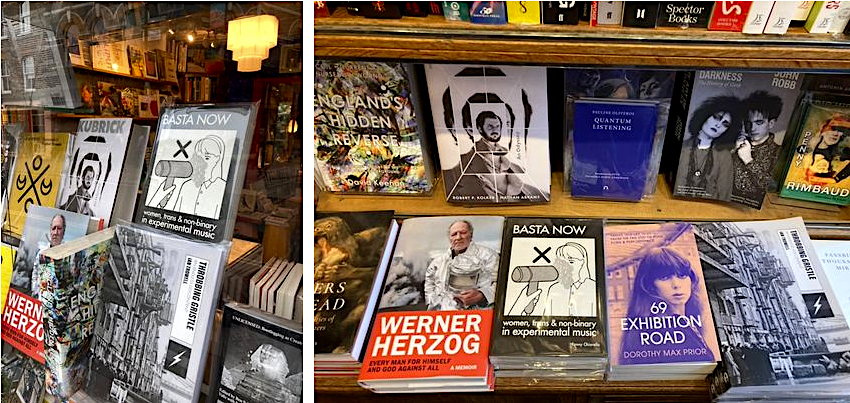Merci à Valentina de m’avoir invitée sur scène à l’Institute of Contemporary Art, vendredi dernier, le temps de quelques poèmes. Merci à Luca pour la photo.
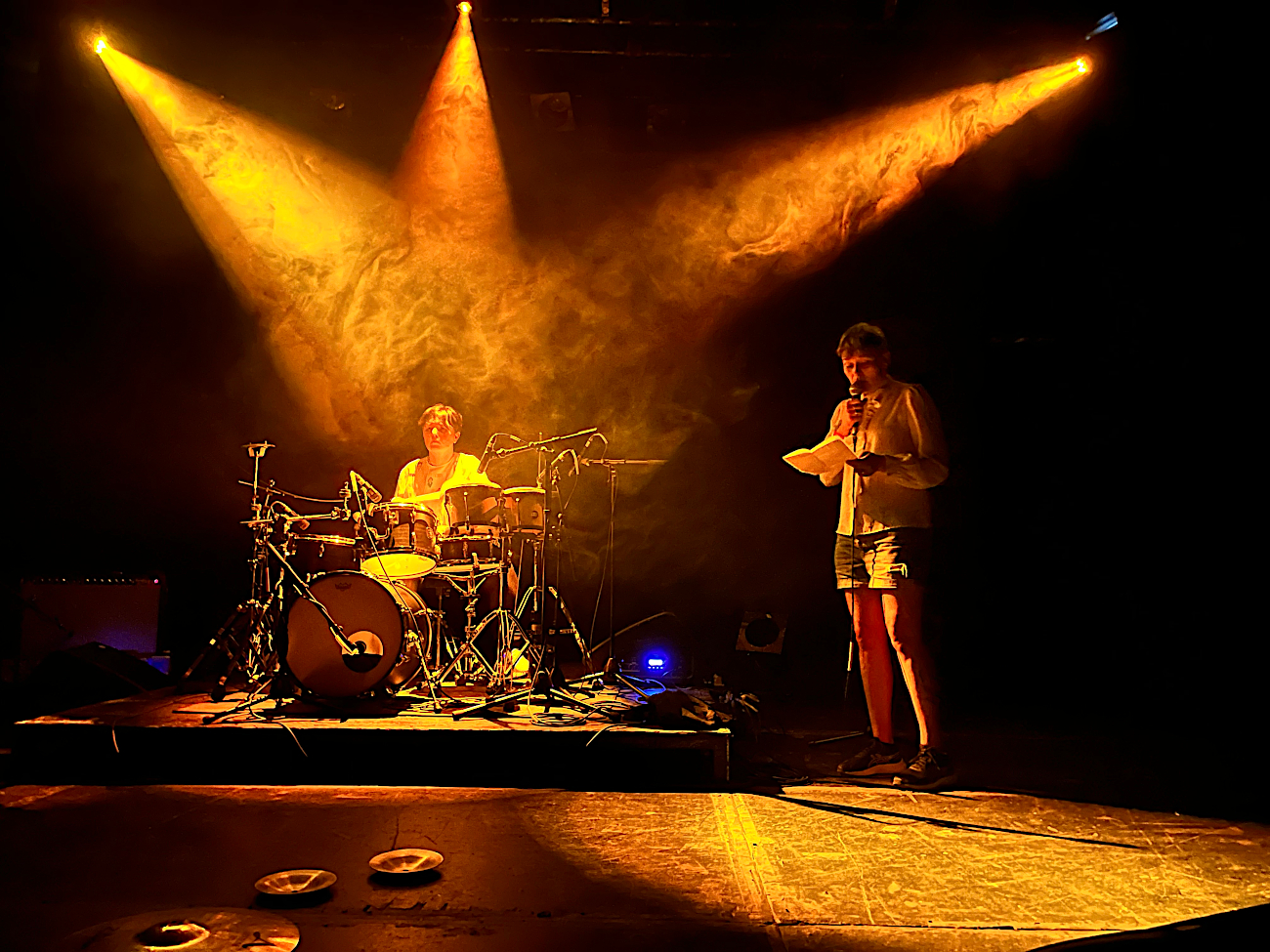
Et merci à la librairie de l’ICA de proposer Basta Now, comme souvent en bonne compagnie…
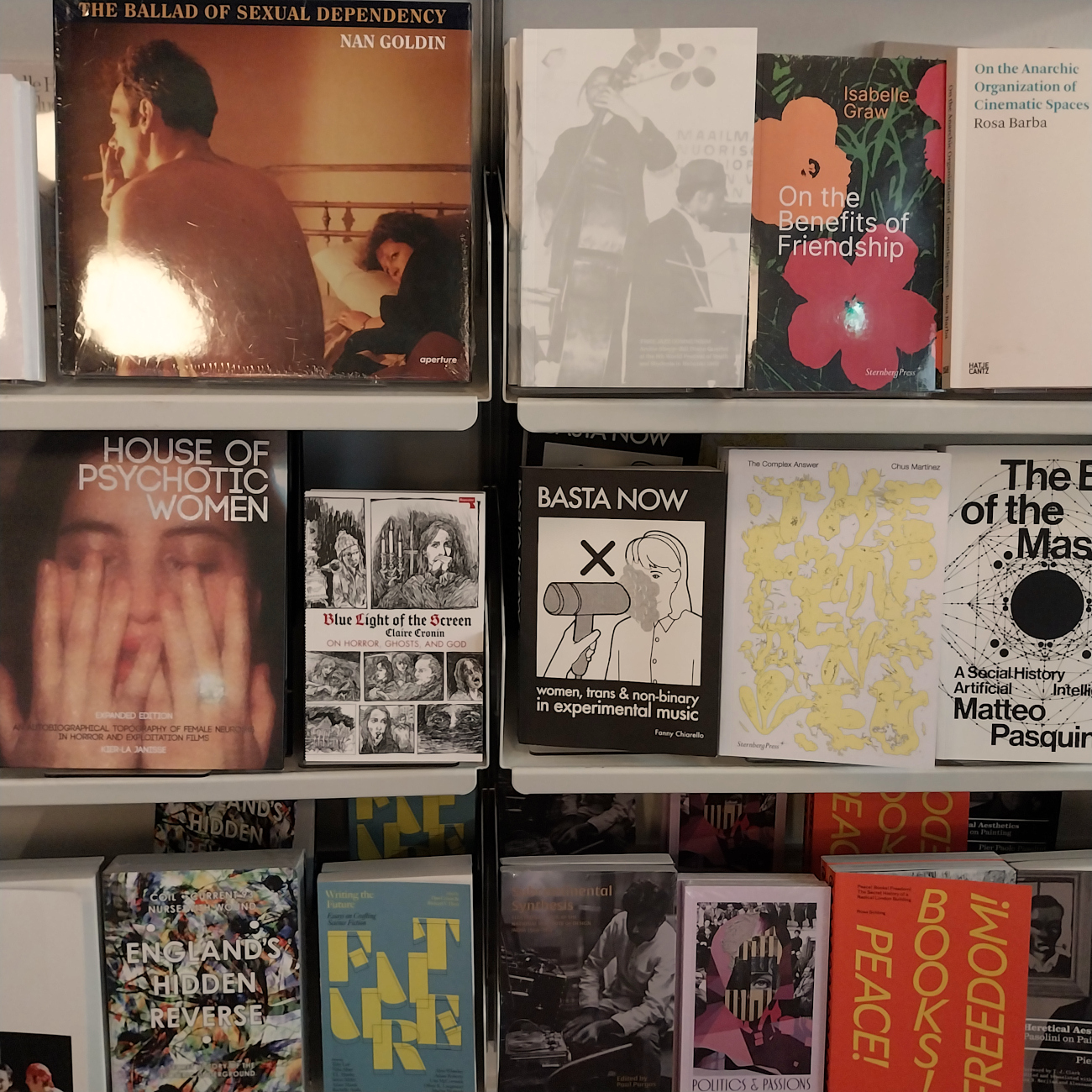
Merci à Valentina de m’avoir invitée sur scène à l’Institute of Contemporary Art, vendredi dernier, le temps de quelques poèmes. Merci à Luca pour la photo.

Et merci à la librairie de l’ICA de proposer Basta Now, comme souvent en bonne compagnie…

Ici, cette très belle chronique de Basta Now par Esmé Dee Hand-Halford, que je remercie de tout coeur. J’ai eu les larmes aux yeux…
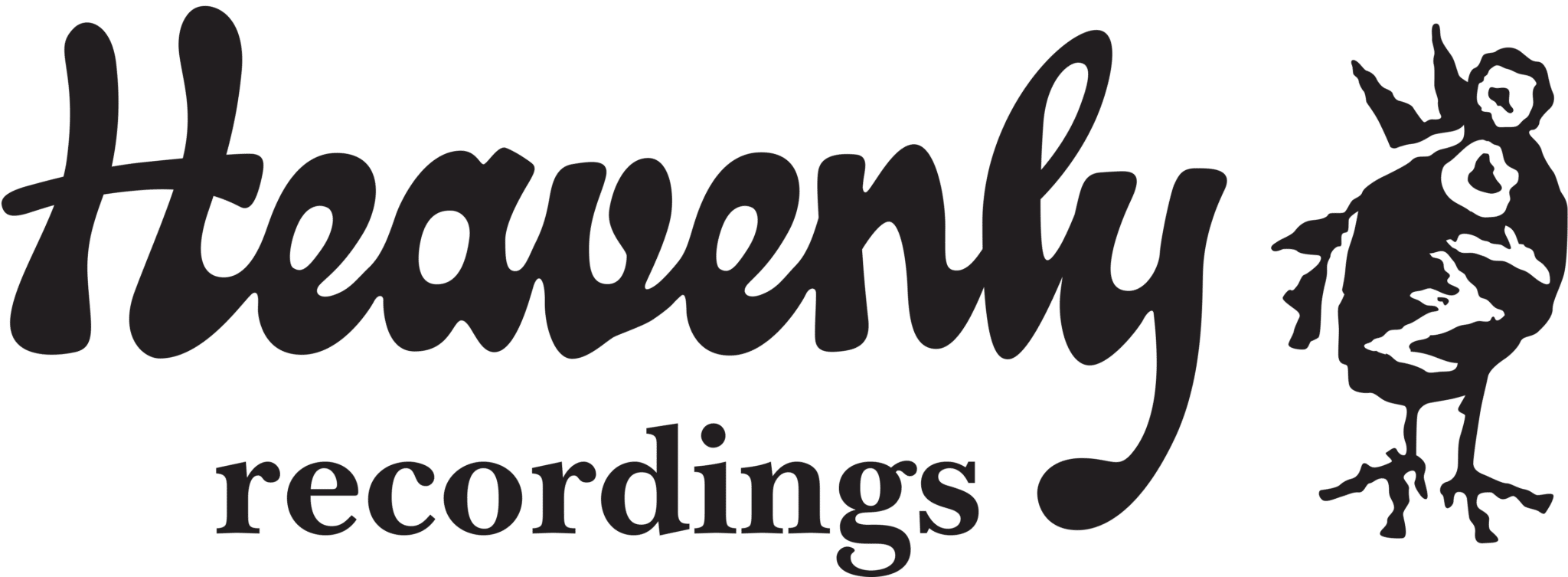
« Fanny Chiarello’s BASTA NOW is her self-titled ‘Palais Ideal’ (if, like me, you’re not already familiar then I urge you to get googling right away!). Part naïve art piece, part anthropological study and part auto-didactic experiment in music, BASTA NOW guides us by the ear through an interminable exploration of women, trans and non-binary experimental musicians. Valentina Magaletti (the polyhedric queen of the genre) illustrates the book, providing a cover stylised as a soviet-era scientific textbook. Disarming the topic from its inaccessible nature with a touch of sardonic humour, Chiarello plunges us into an investigation on the biosphere of artists that form the organic make-up of the experimental music world. They are less visible, but without them ‘the whole environment would be affected’. Repeated long lists of names hammer home this idea, and as clued up as I thought I was, only about a tenth of the artists listed across the book were familiar to me (including Manchester legend and Orielles collaborator Lili Holland-Fricke!), which made for such a thrilling discovery of the rest…
Beginning with a chapter titled ‘A Mouth of One’s Own’ (a nod to Virigina Woolf’s kindred modernist manifesto written 100 years prior), Chiarello guides us through everything from extended vocal technique to the world of faux and freak folk, the commonality being the use of the ‘voice’ as the primary tool for composition. Vocalists that belong in the former category make innovative use of the phonatory and resonatory systems (note the idea of a ‘singer’ here would be uncouth) to compose their pieces, whilst the faux folk lot engage with the voice on a more anachronistic level, noting it as one of the earliest tools humankind were equipped with in primitive attempts to inform, engage and express. The faux-folklore of this music belongs to an abstract ‘past’, a reality lived and located in imagination rather than history books. A music history less grounded in what we understand to be ‘reality’ is perhaps a welcome escape for Chiarello and many of these artists fighting for visibility in a male dominated field.
The book journeys through the world of Graphic Scores and Event Scoring, a term I wish I had known back when I once turned up at a gig that involved people rearranging closely mic’d rocks on stage. Recontextualising the ‘everyday’ as performance in event scoring is a radical step away from the medium of scores as we conventionally understand them, or rather don’t understand them, if lacking in the specific music theory required to read or perform them yourself. Chiarello is keen to share how graphic scoring too, with its openness to variation and interpretation, can be a great access point to experimenting in music. Exploring the inherent marriage between the visual and the sonic, and making use of the natural world, are artists such as Catherine Schieve whose ‘found lines’ (formed by cracks in the pavement, or traces in the sand etc) are used to inform the performance of a score. Chiarello’s implicit affiliation with musicians that embrace nature within their work is evident particularly through an excerpt she shares from an unfinished novel of hers which speaks of a dying planet, and feels as though it could be soundtracked by many of the cited tracks.
Through rebellious sensibility, Chiarello bends and stretches the term ‘experimental’ to fit the likes of Jenny Hval and Cate Le Bon within, to comment on their uncanny lyricism, and invites us throughout to listen and not analyse, a direction ironically less familiar to the world of musicology. Adopting a similar approach to these musicians, she is keen to stray from the use of informative language and its limitations where possible, her imposition on the music spoken about is a self-professed form of sketching, rather than painting, in its efforts to ‘activate zones in our brains which ordinary language can’t reach’.
This affinity between the music Chiarello speaks about, and the commentary that she provides, in itself undergoes experiments in form throughout. Her playful prose composed of ‘piles of words and syllables’ is instrumental in the symphony of information shared. Amongst the most enjoyable instances of this occur when she switches to her first language, that of poetry, to contribute her own words to a drone piece, built from cicadas up. The exercise of listening to a track like Los Angeles Without Palm Trees by Geneva Skeen whilst reading Chiarello’s accompanying poem produces a new performance of the art unto itself, as we are urged to somnambulate our way through the track ‘as if in a film by David Lynch’. Her words evoke haunting images that pair with the foreboding composition, a subtle reminder of the politics of human destruction within the ‘anti-speciest’ DNA of this book.
As though by an admittance of defeat, yet one that is likely welcomed by this point of her compelling manifesto, Chiarello brings the book to a close by listing the subterranea of experimental music that she fails to cover within the finite pages of the book. Within this signoff is notable mention of an artist named Klein, who I was lucky enough to catch playing at The White Hotel whilst reading BASTA NOW. Using Klein as a case study of sorts, directing us to listen to her music with a new ear in order to avoid ‘the tools of ordinary analysis [from] distorting our ear, impoverishing our thought and drying our sensitivity’, could be an appropriate way of understanding the text as a whole. Attempts to neatly categorise the book, and Chiarello’s voice, prove just as futile as attempting to understand experimental music as something that isn’t highly malleable in both its practice and interpretation. Aptly described as evoking suffocation, Klein’s music is impossible to follow within the framework of our syntagmatic understanding of music, where over time we have trained ourselves to await genre-specific formal expectations, and the same could be said for the book within the canon of conventional non-fiction. In its final moments, BASTA NOW suggests that maybe what truly opposes experimentalism is expectation, and that the women, trans and non-binary artists in this field, structured by a highly masculine, highly scientific epistemology, are embracing the freedom to show and share their defiance to this. »
En ligne aujourd’hui ici, sur le site Internet du magazine Wire, cette interview de Valentina et moi, à propos de Basta Now mais aussi, plus largement, de Permanent Draft. Encore mille mercis à Irene Revell.
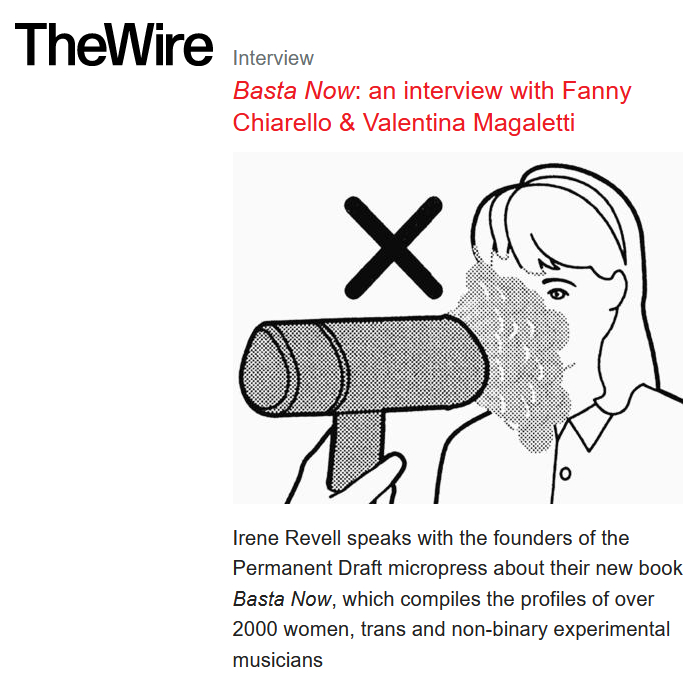
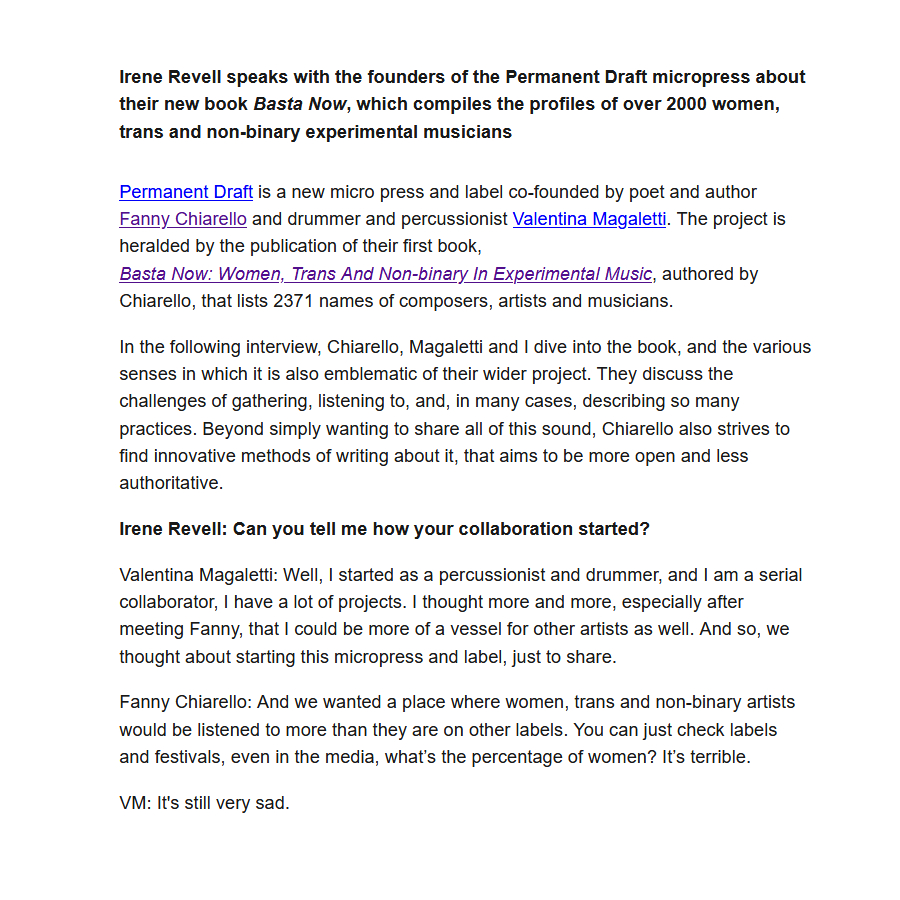
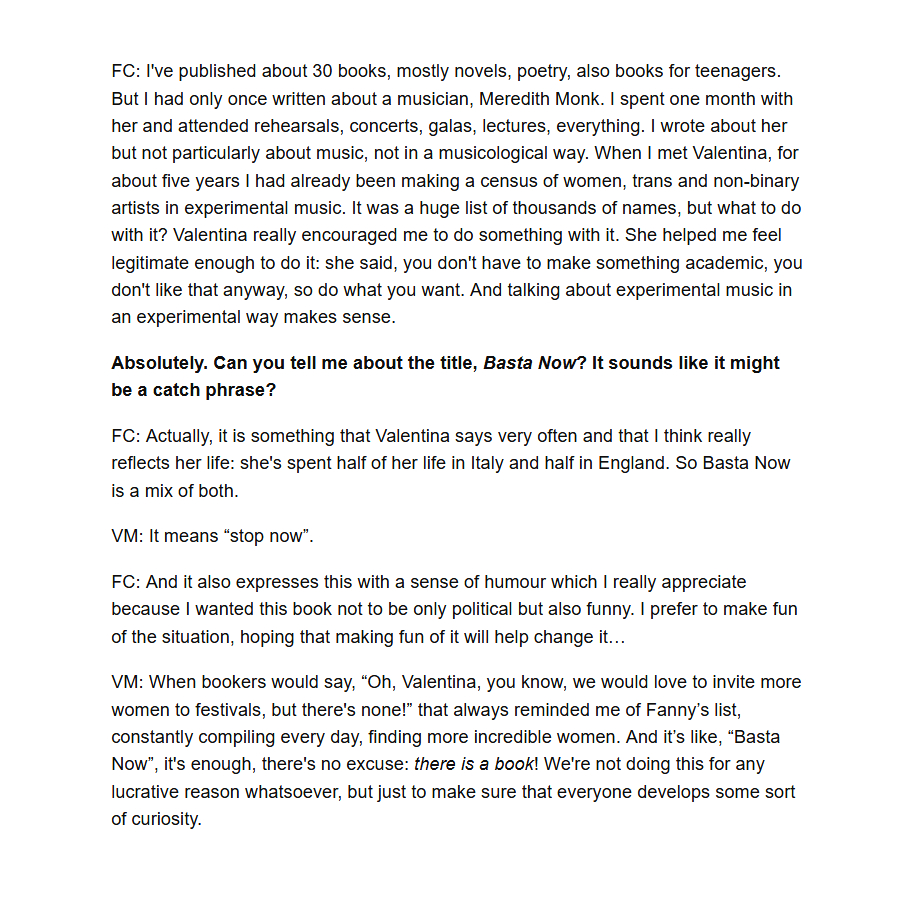
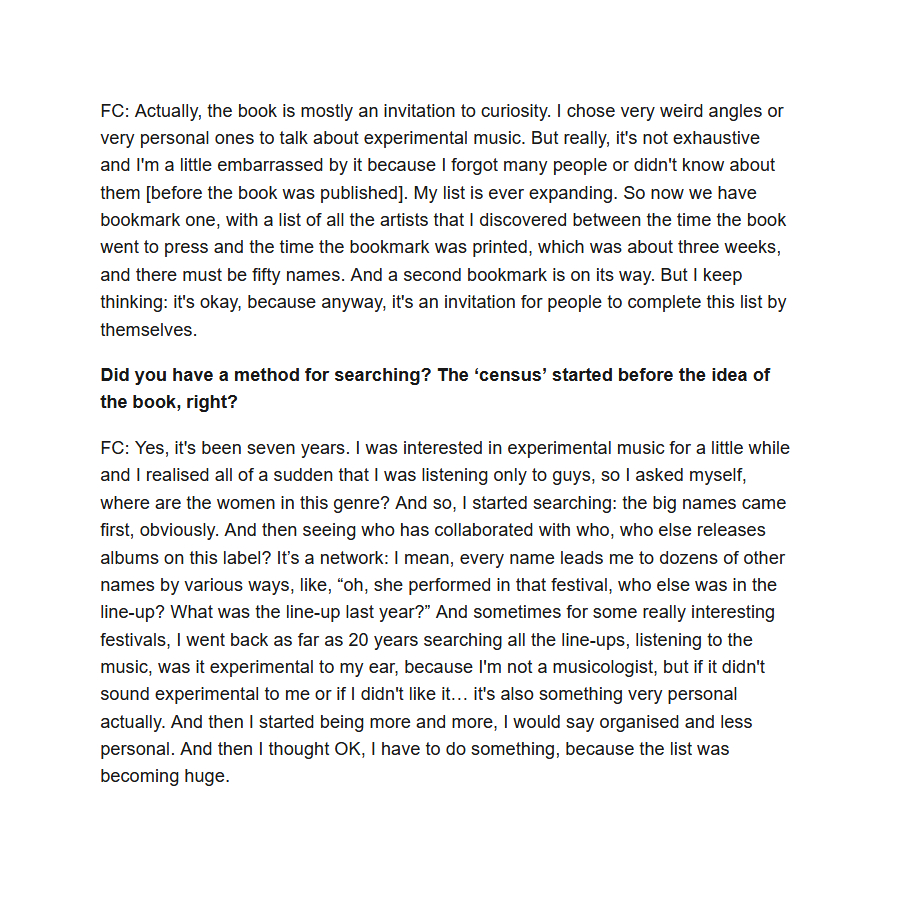
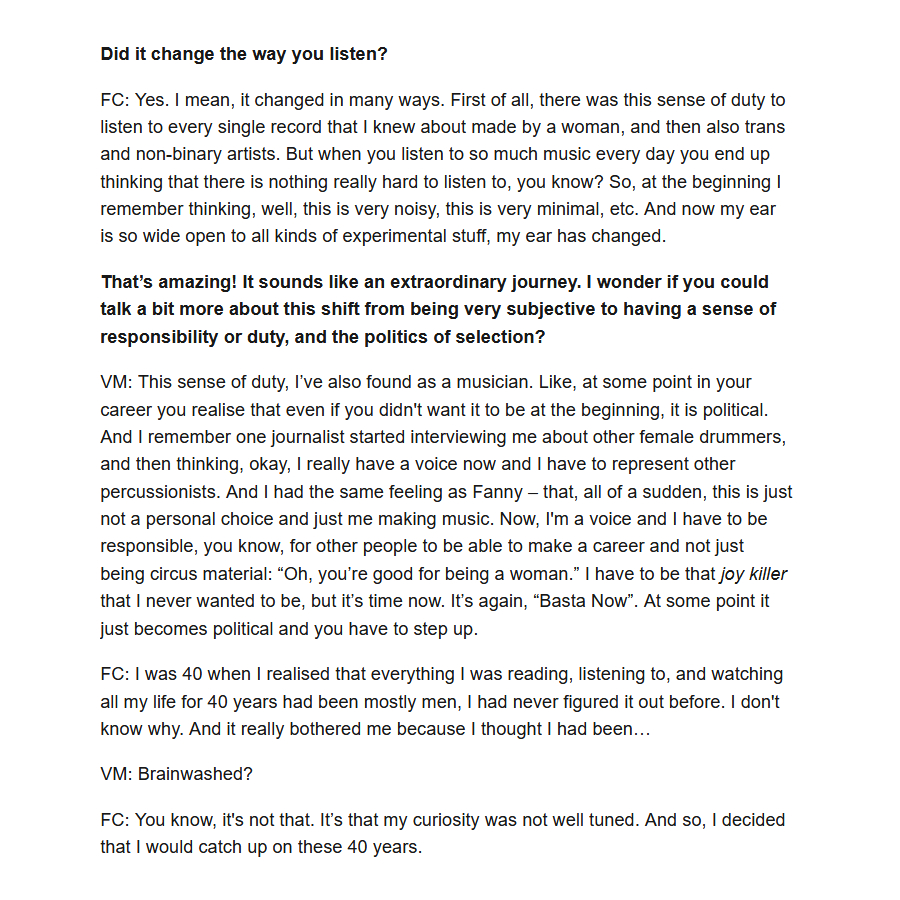
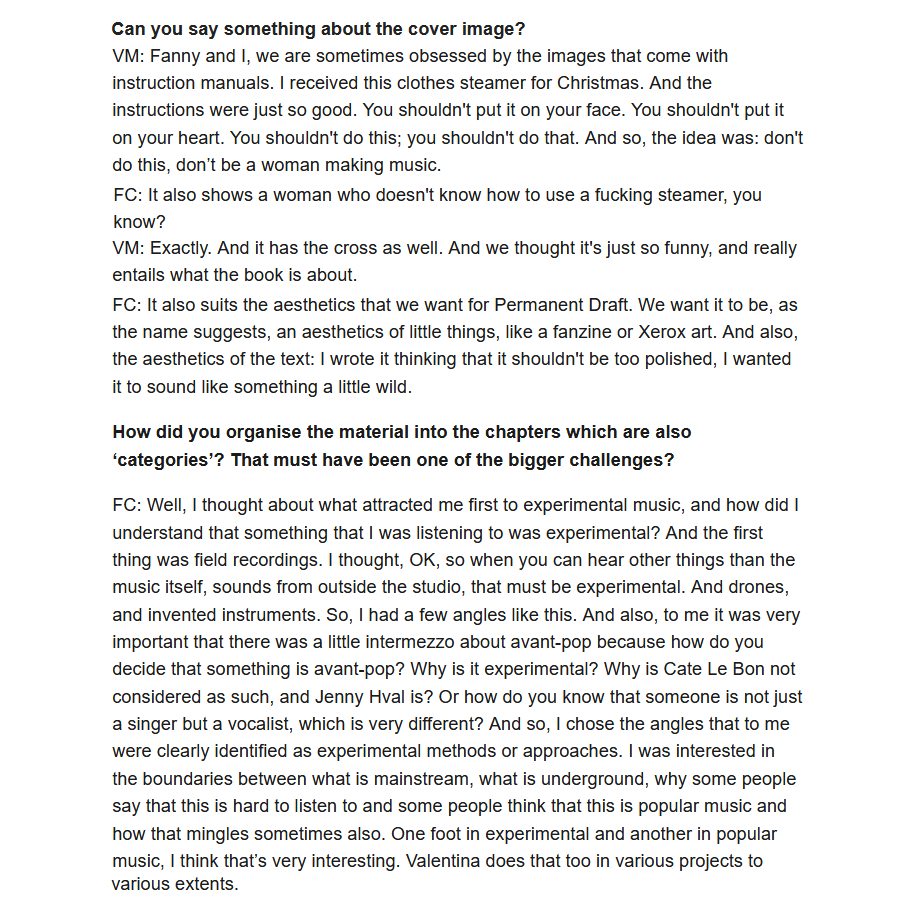
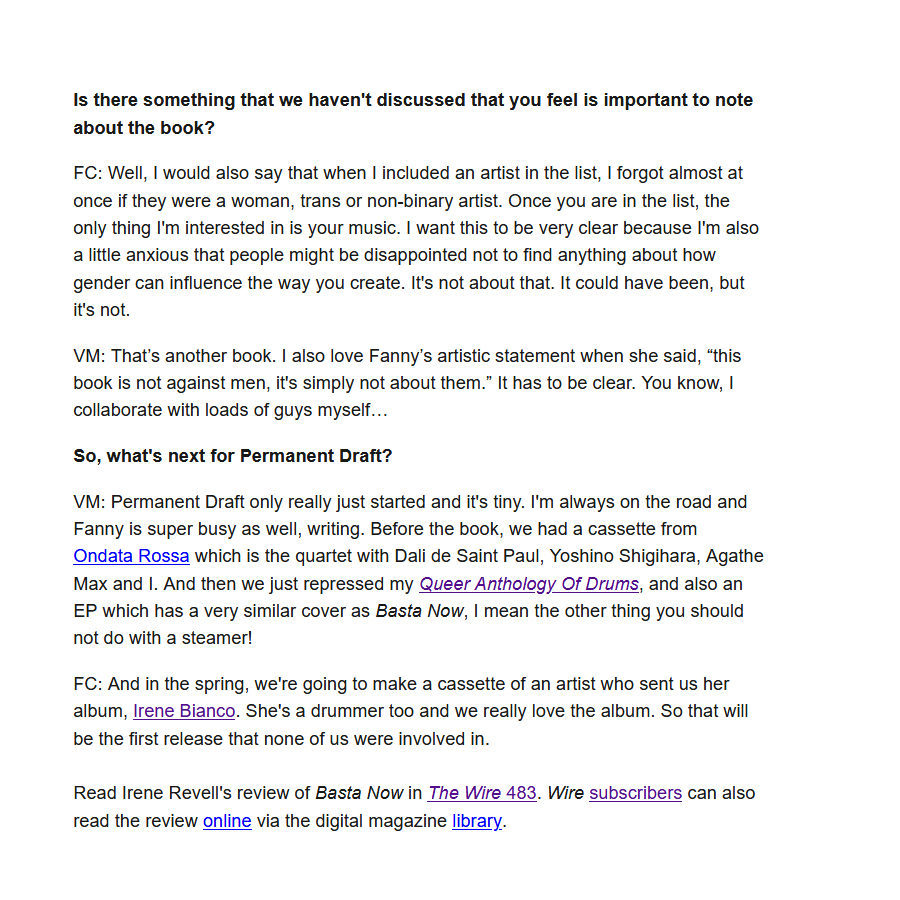
Ce que j’ai pu parler du magazine Wire sur ce blog, ces dix dernières années… Mon magazine préféré, la référence mondiale de la musique expérimentale. Si on m’avait dit qu’un jour, un article serait consacré à l’un de mes livres, et un article aussi formidable, et à la page 71 (qui est un chouette nombre premier), je n’aurais pas osé y croire. Et ce n’est pas tout : en ligne, on peut trouver une interview croisée de Valentina et moi (à suivre ici bientôt). Merci infiniment à Irene Revell, autrice de l’article (et de l’interview) et à Emily Bick, la rédactrice en chef.
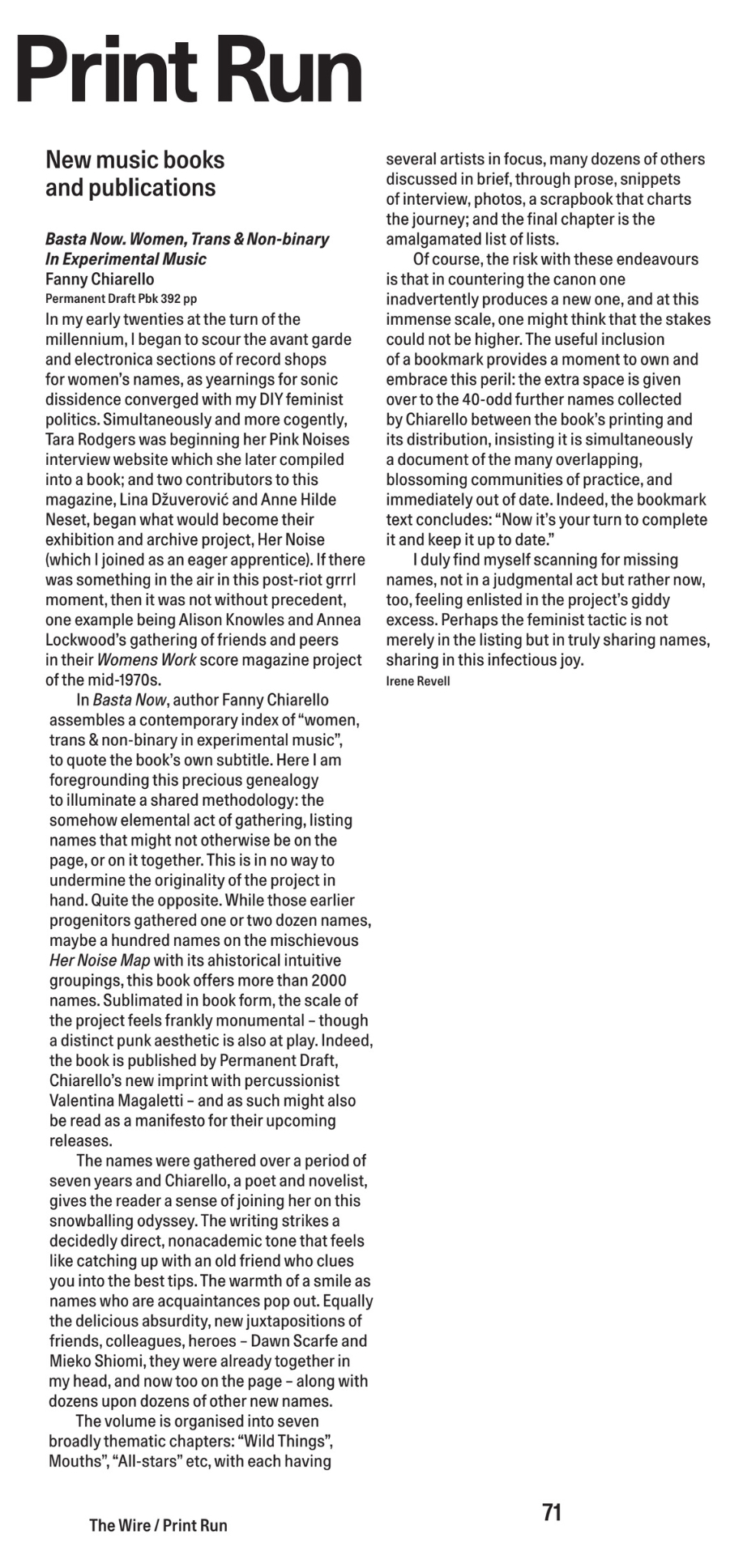
Cependant, Basta Now poursuit son chemin ; on le trouve dans des librairies de Californie (San Francisco, Oakland, Los Angeles), de Portland, du Minnesota, d’Arizona, de Berlin, etc. ; on le trouve en Italie, en Suisse, au Japon, en Angleterre ; etc. La France, c’est quand tu veux. La Belgique aussi (on aime beaucoup la Belgique).
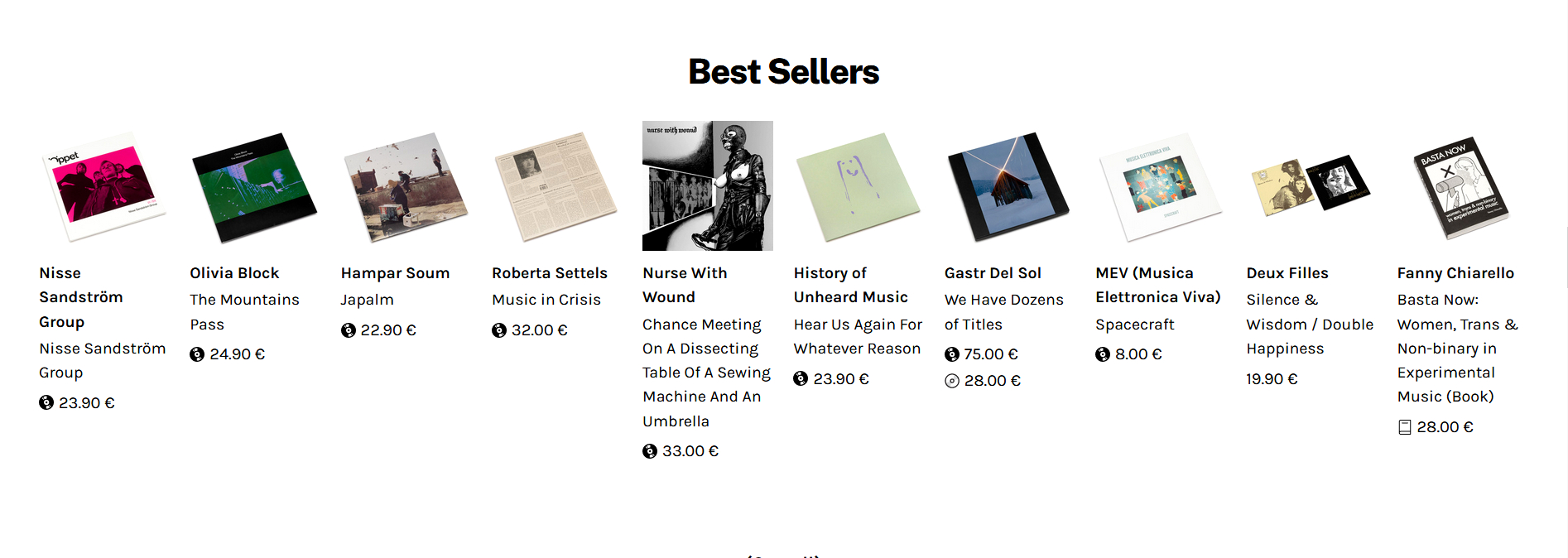
Valentina et moi sommes à l’honneur sur le site et dans la newsletter de ce disquaire par correspondance spécialisé dans les musiques électroniques, expérimentales et d’avant-garde, qui a son siège à Milan – où nous présenterons finalement Basta Now le 23 mai.
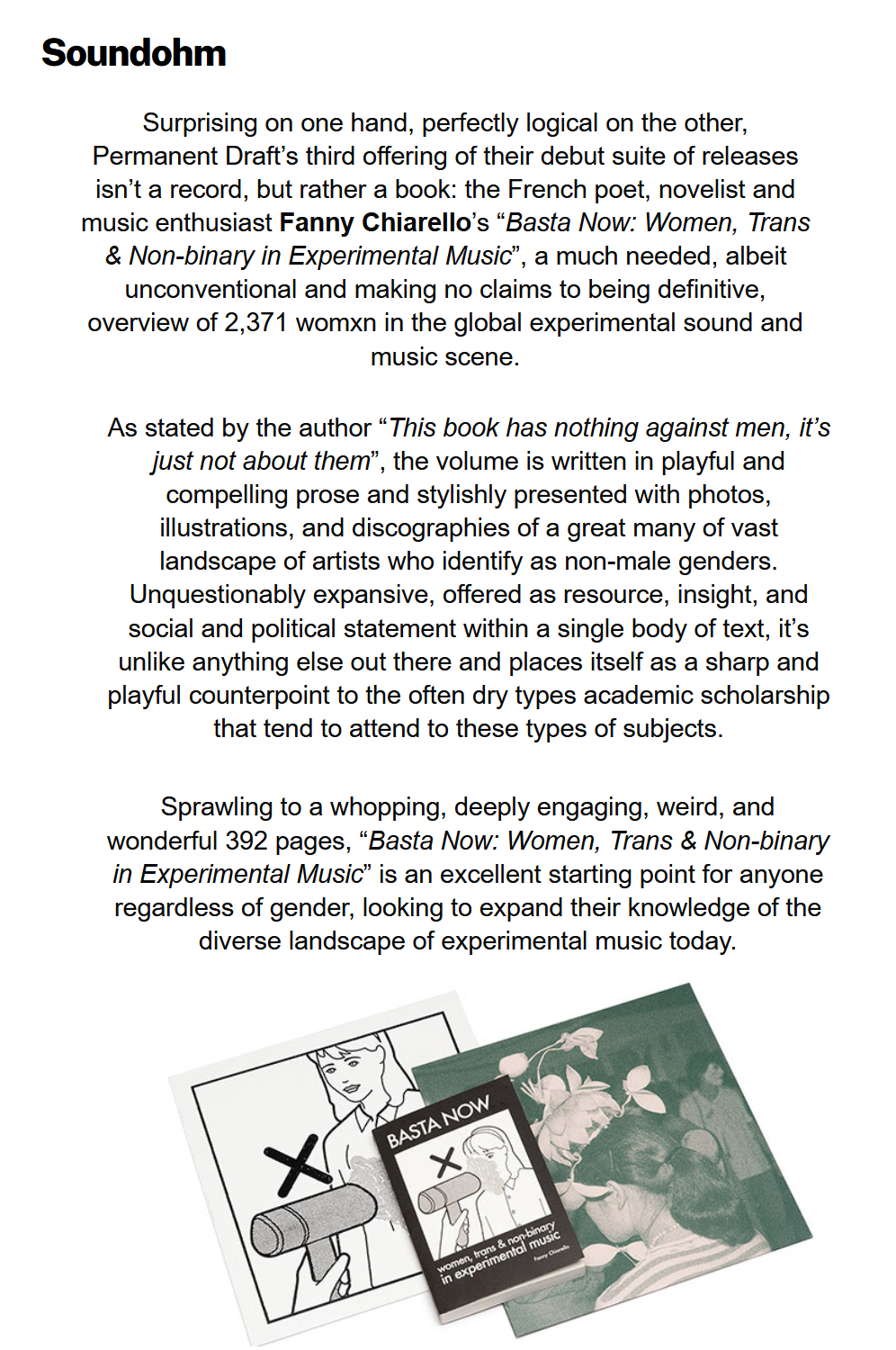
Aujourd’hui, des commandes nous sont venues de disquaires et de librairies d’Oakland et de Finlande, joie ! Bruxelles, c’est quand tu veux…
Quelle surprise ce matin quand, parcourant comme chaque jour une dizaine de sites Internet dont j’apprécie la ligne éditoriale, en quête de nouvelles parutions discographiques de musiciennes expérimentales, j’ai découvert ce paragraphe en intro de la chronique mensuelle de Jennifer Lucy Allan :
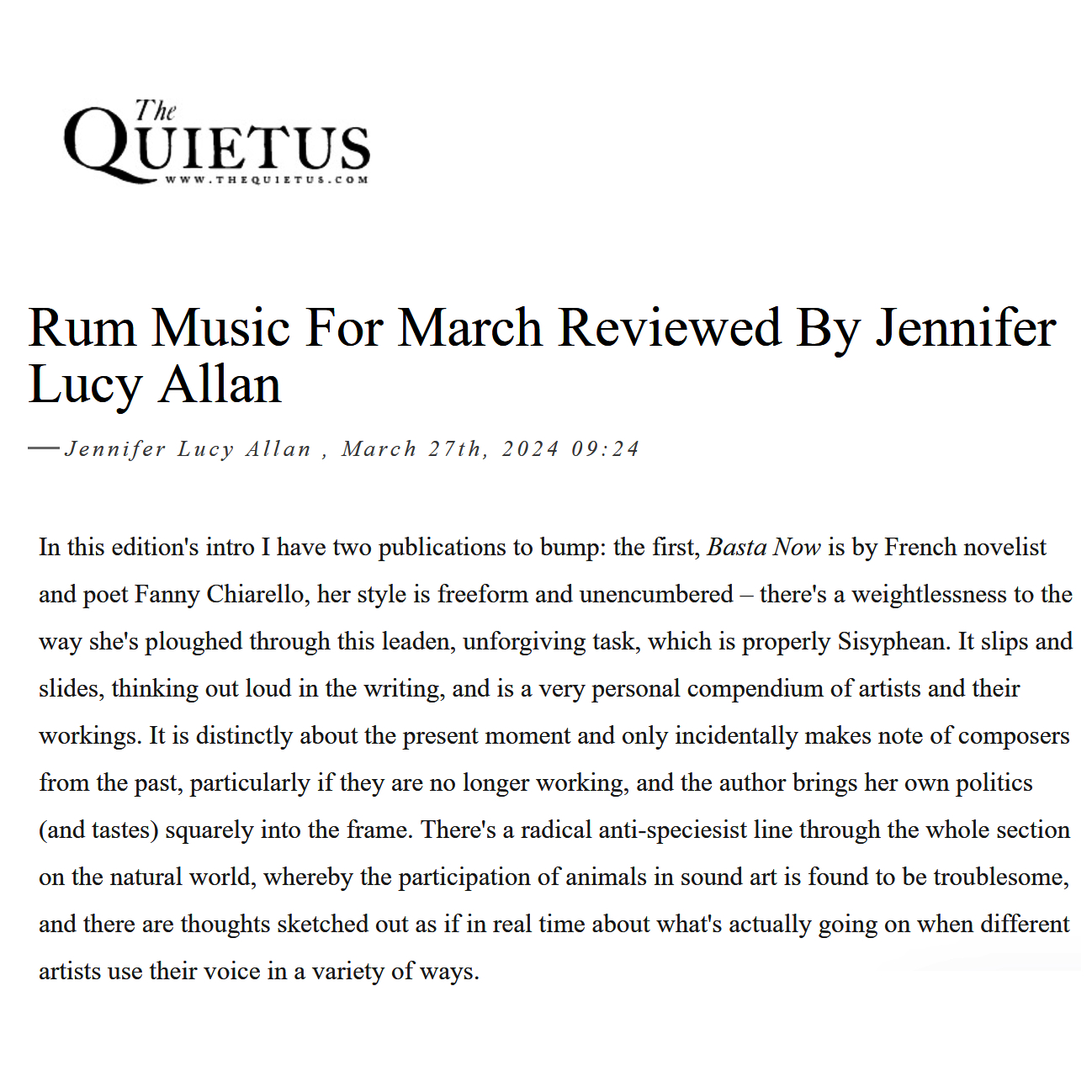
Cependant, les commandes continuent de tomber, pour notre grand bonheur. Ainsi, Basta Now est désormais disponible au Japon (merci Tobira Records) et le sera bientôt en Californie (merci Dog Eared Books Valencia).
Merci à Pop Culture de soutenir Permanent Draft. On peut trouver chez ce disquaire parisien / librairie de BD les trois nouvelles parutions de Permanent Draft, A Queer Anthology of Drums et Lucha Libre de Valentina et mon Basta Now. Cette photo vient d’ailleurs de leur compte Instagram. Bientôt, nous allons sortir un album qui nous a été envoyé par mail et qui nous a tapé dans l’oreille, d’une percussionniste italienne basée à Copenhague. Permanent Draft, c’est plutôt bien parti et nous en sommes très heureuses et reconnaissantes.
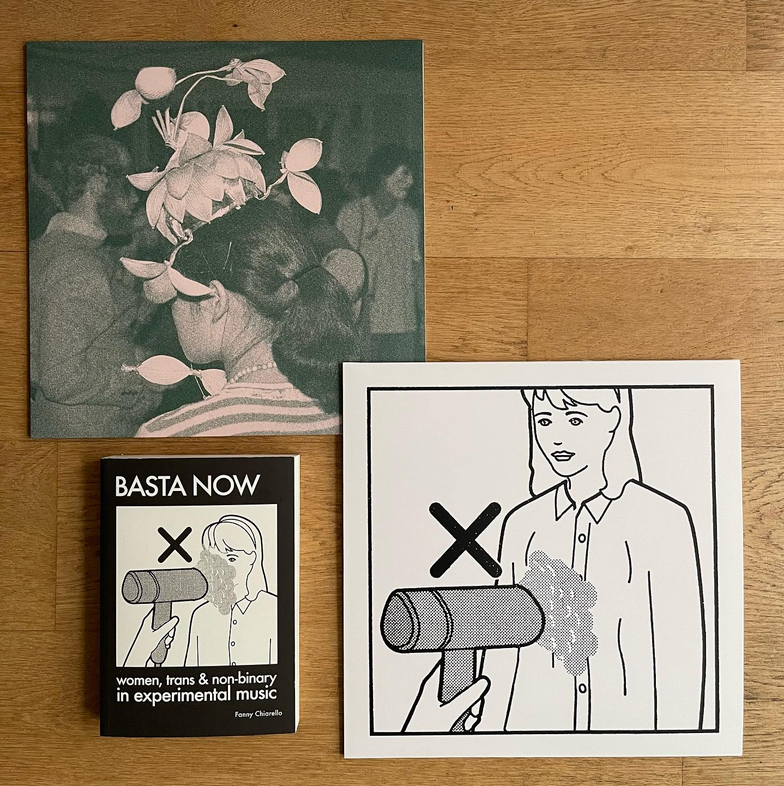
C’est bien la première fois de ma vie que je fais partie d’un top 50 – celui de Bookmat, les 7 derniers jours, 3 places derrière le nouveau Kim Gordon.
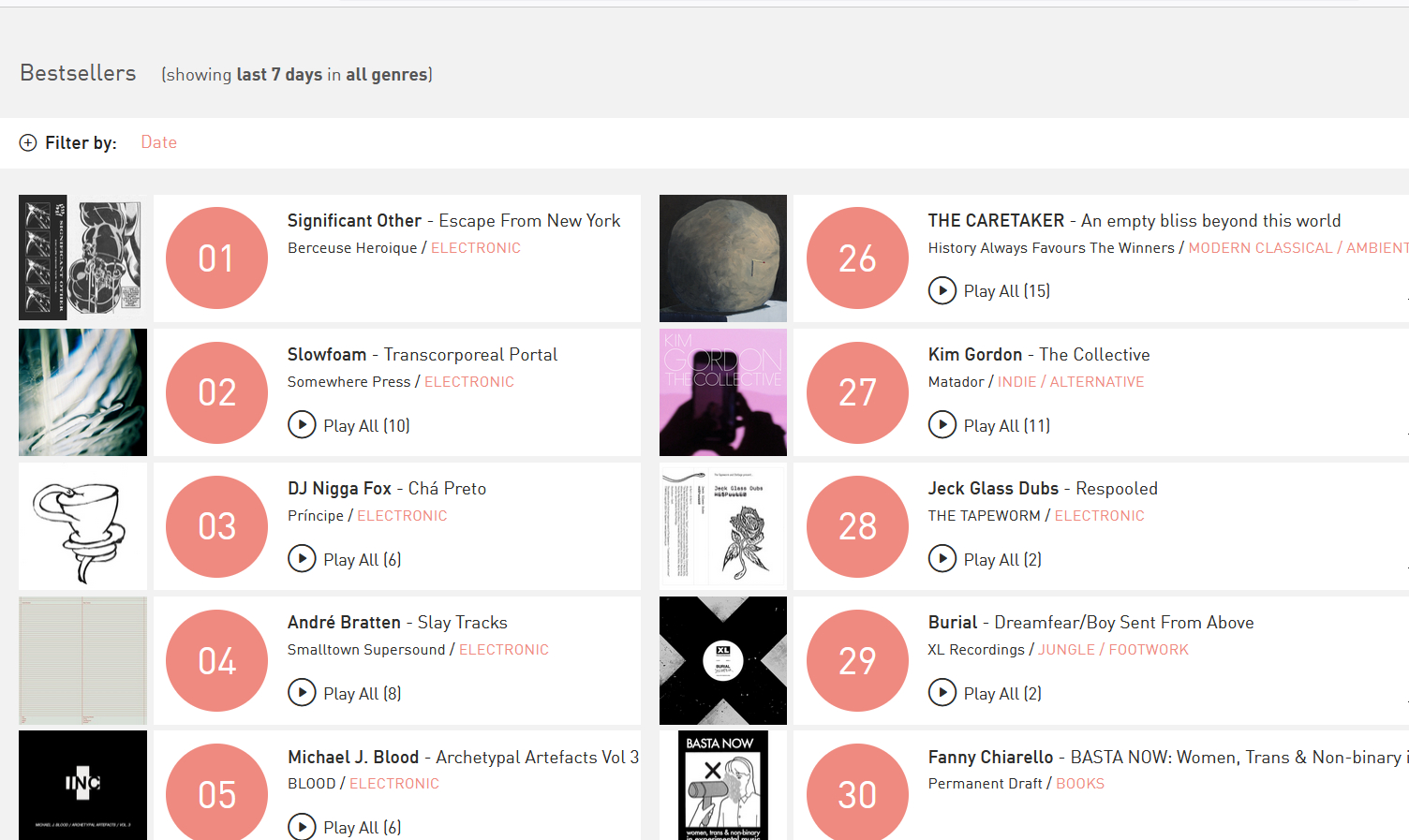
On peut désormais trouver le livre chez deux disquaires parisiens, Le Souffle Continu et Pop Culture ; à Londres, au Café Oto et à la librairie Donlon. On peut aussi le commander sur le site de Rough Trade. Nous le présenterons au festival Jazz is Dead à Turin le 24 mai, puis à Milan. En attendant, nous en apporterons quelques exemplaires à Nantes pour le festival Variations, du 5 au 7 avril.
Pendant ce temps, j’écris des petits romans pour ados en deux semaines. Merci aux éditions Page à Page de m’avoir embarquée dans cette aventure sur les chapeaux de roues – plutôt vélo que quad…
Lancement samedi matin au salon PolarLens en présence de l’illustratrice Sandrine Sekulak.
Vendredi dernier, le lancement de Basta Now au Café Oto a été pour nous un enchantement. La plus grande partie de nos ami-e-s londonien-ne-s étaient de la fête, ainsi que mes deux meilleures amies venues de Lille pour l’occasion. Après ma discussion avec Jennifer Lucy Allan (que je remercie encore pour son enthousiasme et la finesse de l’échange), Jennifer Walshe a subjugué la foule, puis à son tour Ondata Rossa.
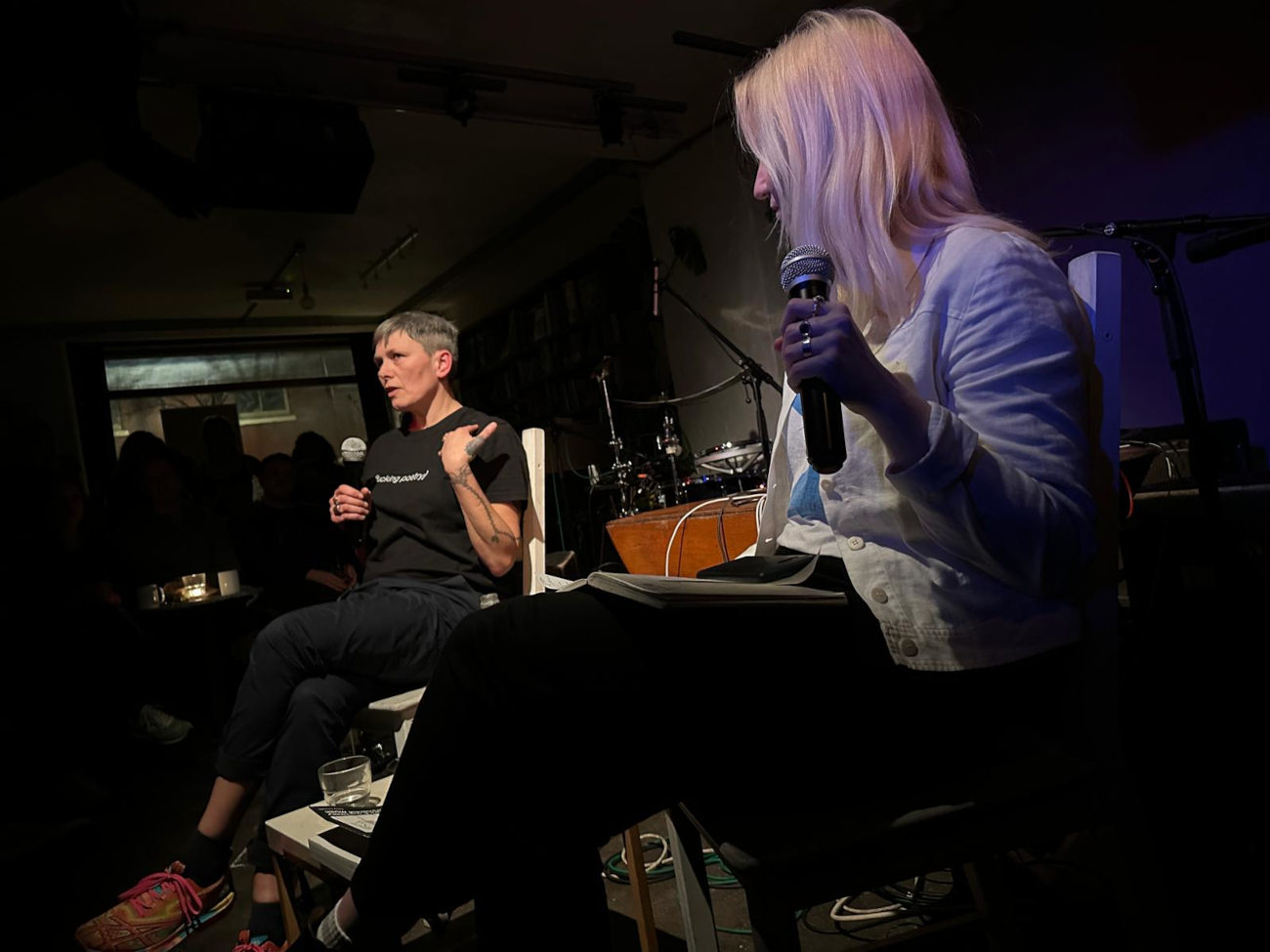
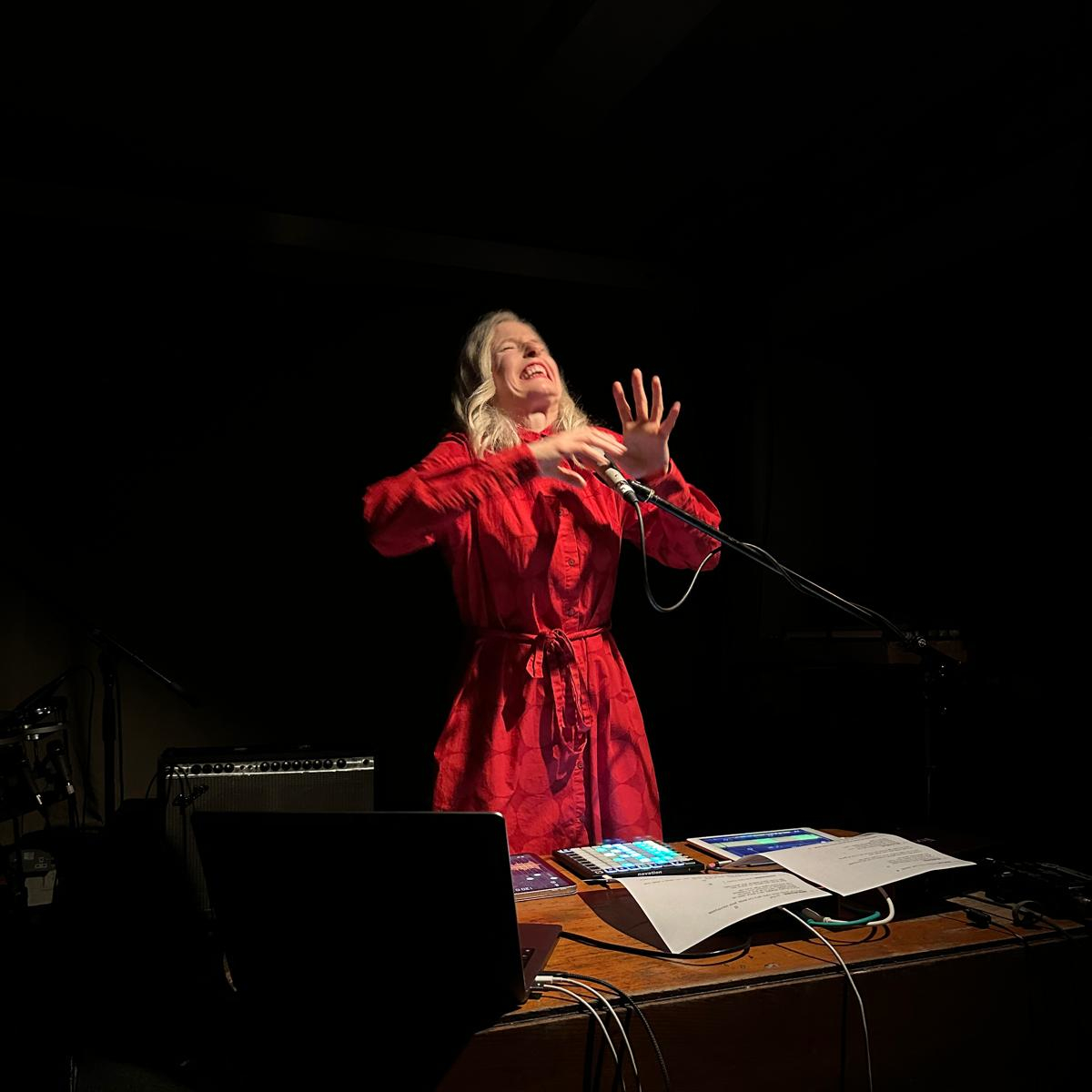
Ici, Dali applaudissant le discours de fin de résidence de Valentina.
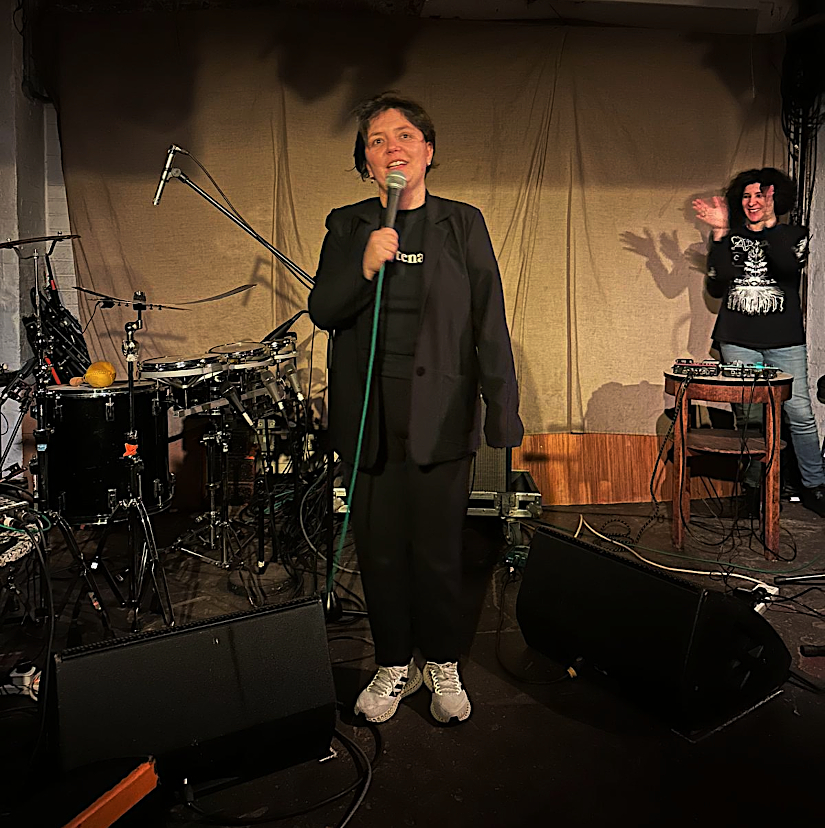
J’aime beaucoup la photo ci-dessous, prise par mon Antique, d’autant qu’on voit sur les côtés quelques-un-e-s de nos ami-e-s, plus ou moins flou-e-s – Davide, Susumu et, à droite, Clémentine et William.
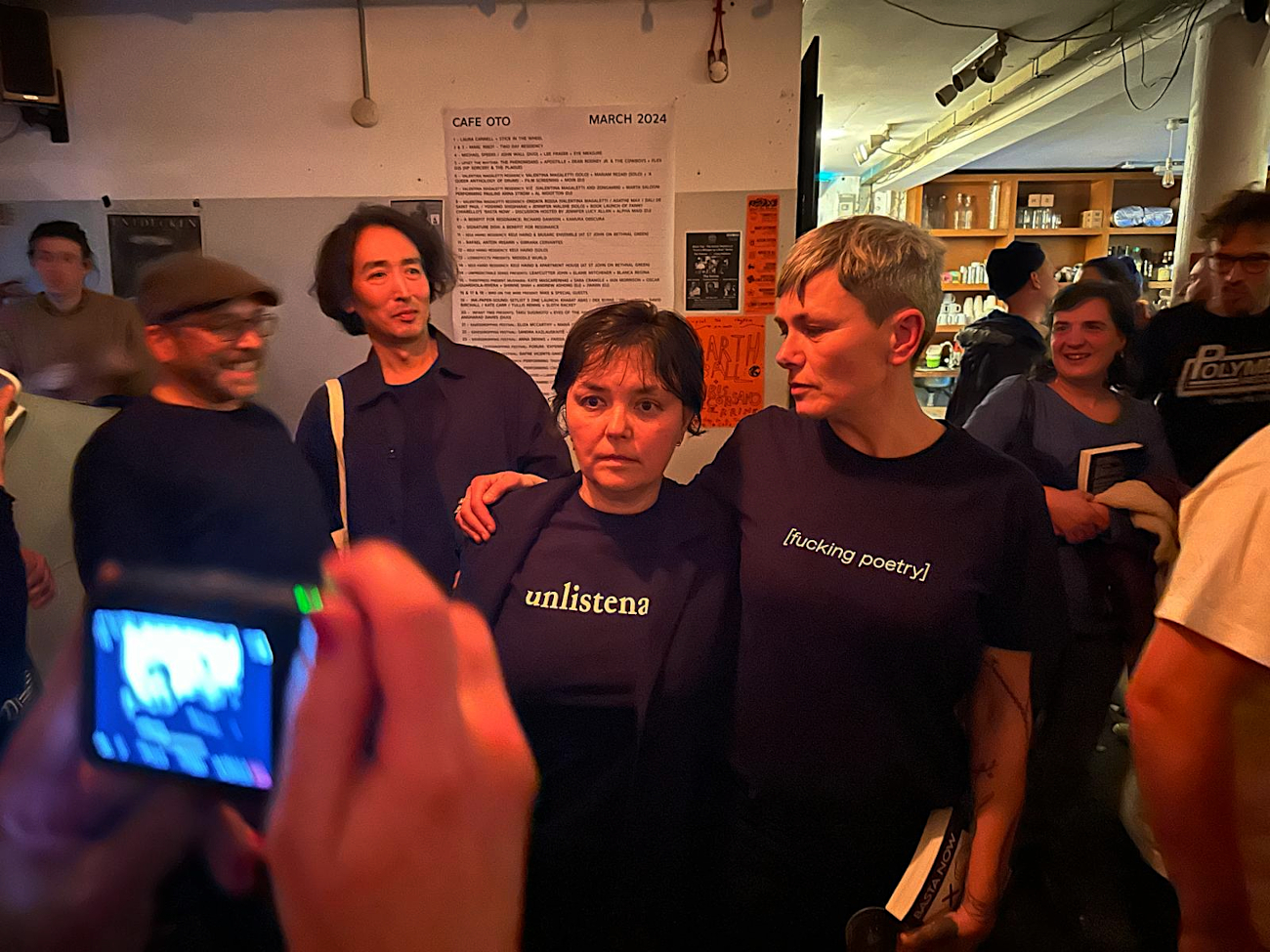
Hier, après avoir donné une interview à mon magazine préféré (à suivre), j’ai reçu ces photos des gérantes de la librairie Donlon (LA librairie dans laquelle nous allons au moins une fois à chacun des mes passages à Londres) : voici Basta Now en vitrine et en bonne compagnie. J’ai un peu l’impression de vivre un rêve adolescent et je suis infiniment reconnaissante pour cet accueil inespéré du livre, notamment (enfin) pour les retours de lecture très rassurants.
